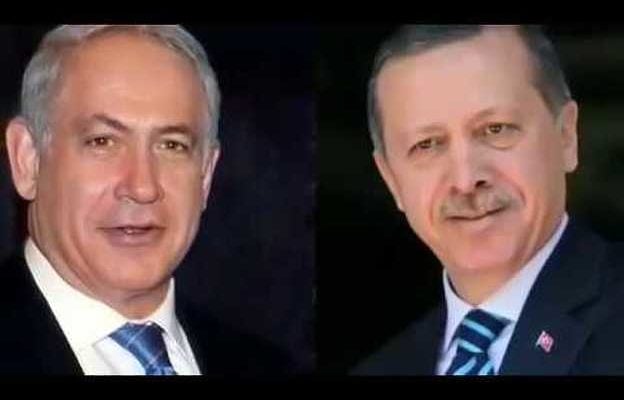President Erdogan and Israel’s re-elected Benjamin Netanyahu have had a touchy relationship in the past.
By Batya Jerenberg, World Israel News
Turkey will keep its recent, fully reestablished diplomatic ties with Israel despite the apparent victory of the Likud-led right-wing bloc, President Recep Tayyip Erdogan said Wednesday.
“Whatever the election result, we want to maintain relations with Israel on a sustainable basis, based on mutual respect for sensitivities and common interests,” the president told Turkish broadcaster ATV in an interview.
The two countries only settled on full rapprochement in August after over a decade of strained relations that saw Turkey remove its ambassador from Israel twice, in 2010 and 2016. Erdogan was especially personally critical of Likud head Benjamin Netanyahu when he was prime minister, and the two got into several rounds of name-calling during a nadir in Israel-Turkey relations.
In March 2019, for example, Erdogan called him a “tyrant” and a “murderer who oppresses the Palestinian nation.” That September, after Erdogan accused Israel from the podium of the United Nations of systematically stealing land from the Palestinians, Netanyahu lashed back, “He who does not stop lying about Israel, who slaughters the Kurds in his country, and who denies the awful massacre of the Armenian people – should not preach to Israel.”
In May 2018, after Erdogan said Israel was a “terrorist state” that committed “genocide” while it was defending its southern border against Hamas terrorists, Netanyahu said the Turkish leader “well understands terrorism and slaughter.”
Erdogan’s statement accords with the reasoning for his normalizing relations in the first place. According to an Institute for National Security Studies (INSS), analysis in August, this includes the improvement of relations with Washington by going through Jerusalem, perceived economic benefits for the financially-strapped country, and an attempt to “reset Turkey’s regional policy” and “exploit opportunities,” both politically and economically, following the signing of the Abraham Accords, even if Ankara officially opposed them.
Israel’s then-charge d’affaires in the Turkish capital and now ambassador, Irit Lillian, also told i24 News after the announcement of the upgrade in relations that it would be “accurate” to say the countries “are aiming to be two good regional partners.”
“Working for more security and stability in the region… is in the interest of both the Turks and the Israelis,” she said, even while there are issues on which “we have agreed to disagree.” This includes Turkey’s so-far steady support and sheltering of Hamas terrorists, which is a very sore point for Israel.





